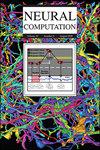只在边界上学习:用于求解复杂几何中参数偏微分方程的物理信息神经算子。
IF 2.7
4区 计算机科学
Q3 COMPUTER SCIENCE, ARTIFICIAL INTELLIGENCE
引用次数: 0
摘要
最近,深度学习代理和神经算子在求解偏微分方程(PDE)方面大有可为。然而,它们往往需要大量的训练数据,而且仅限于有界域。在这项工作中,我们提出了一种新颖的物理信息神经算子方法,用于解决无标记数据的参数化边界值问题。通过将 PDE 重新表述为边界积分方程 (BIE),我们可以只在域的边界上训练算子网络。这种方法将所需采样点的数量从 O(Nd) 减少到 O(Nd-1),其中 d 是域的维数,从而显著加快了训练过程。此外,我们的方法还能处理无边界问题,这是现有的物理信息神经网络(PINN)和神经算子无法实现的。我们的数值实验显示了参数化复杂几何图形和无界问题的有效性。本文章由计算机程序翻译,如有差异,请以英文原文为准。
Learning Only on Boundaries: A Physics-Informed Neural Operator for Solving Parametric Partial Differential Equations in Complex Geometries
Recently, deep learning surrogates and neural operators have shown promise in solving partial differential equations (PDEs). However, they often require a large amount of training data and are limited to bounded domains. In this work, we present a novel physics-informed neural operator method to solve parameterized boundary value problems without labeled data. By reformulating the PDEs into boundary integral equations (BIEs), we can train the operator network solely on the boundary of the domain. This approach reduces the number of required sample points from O(Nd) to O(Nd-1), where d is the domain's dimension, leading to a significant acceleration of the training process. Additionally, our method can handle unbounded problems, which are unattainable for existing physics-informed neural networks (PINNs) and neural operators. Our numerical experiments show the effectiveness of parameterized complex geometries and unbounded problems.
求助全文
通过发布文献求助,成功后即可免费获取论文全文。
去求助
来源期刊

Neural Computation
工程技术-计算机:人工智能
CiteScore
6.30
自引率
3.40%
发文量
83
审稿时长
3.0 months
期刊介绍:
Neural Computation is uniquely positioned at the crossroads between neuroscience and TMCS and welcomes the submission of original papers from all areas of TMCS, including: Advanced experimental design; Analysis of chemical sensor data; Connectomic reconstructions; Analysis of multielectrode and optical recordings; Genetic data for cell identity; Analysis of behavioral data; Multiscale models; Analysis of molecular mechanisms; Neuroinformatics; Analysis of brain imaging data; Neuromorphic engineering; Principles of neural coding, computation, circuit dynamics, and plasticity; Theories of brain function.
 求助内容:
求助内容: 应助结果提醒方式:
应助结果提醒方式:


